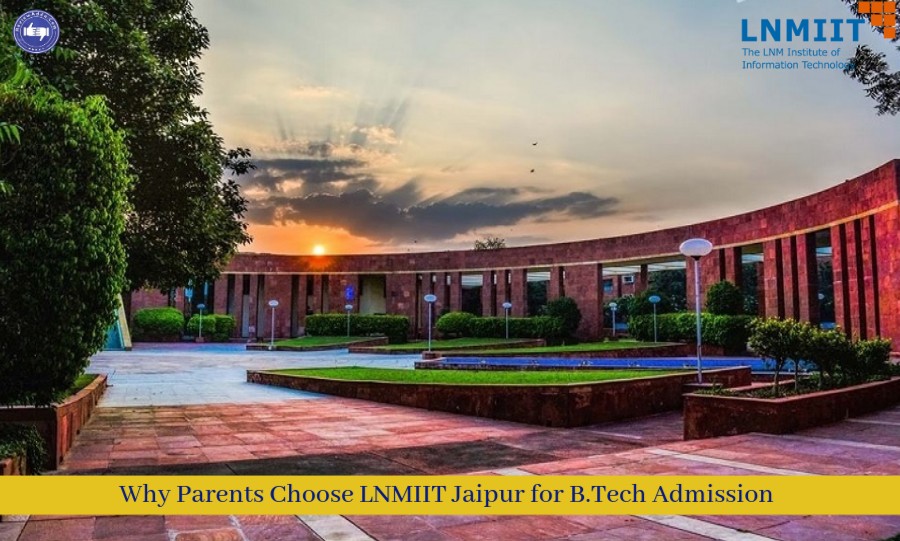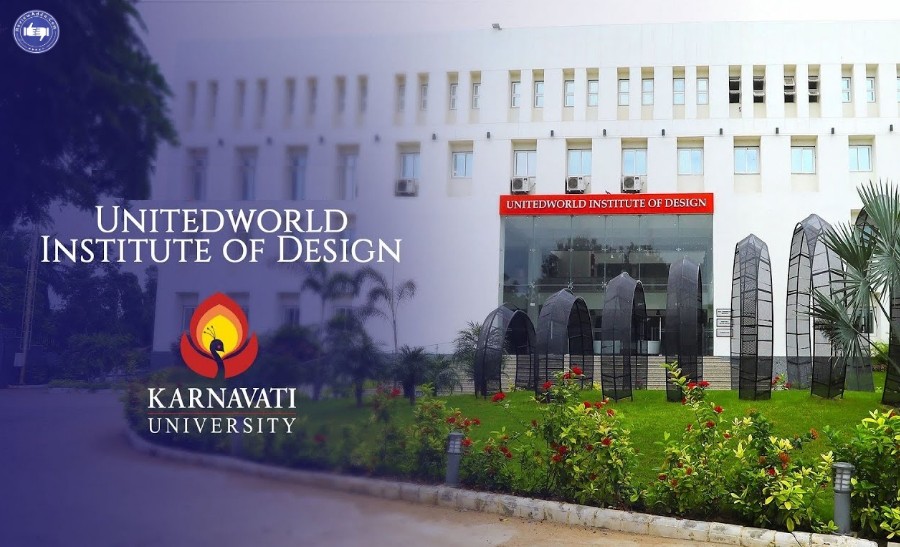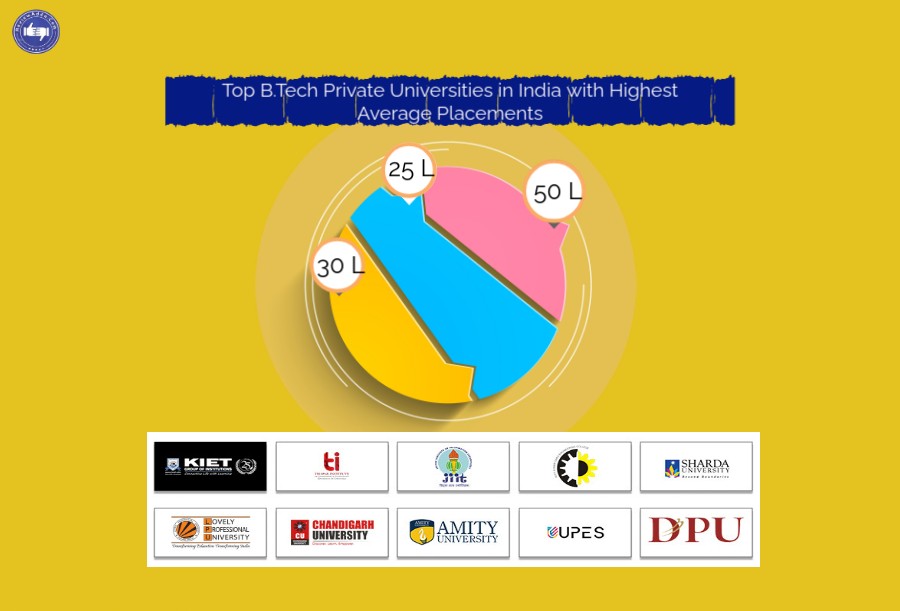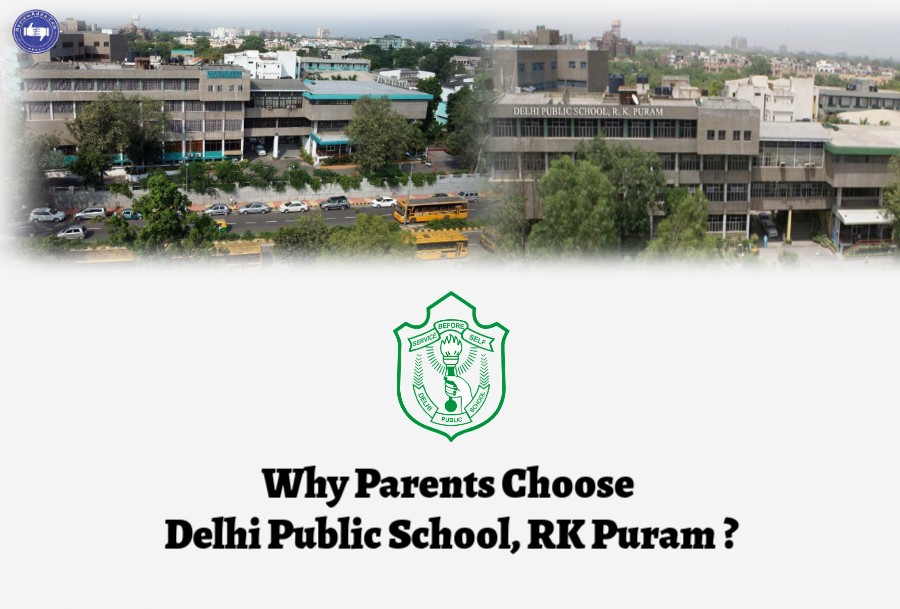Why did Parents choose Ashoka University?
Ashoka University is a private and coeducational university founded in 2014 and based in Sonipat, Haryana, India. It is the first liberal arts university in the entire country and region. Ashoka University is a coeducational humanities and sciences University that provides Undergraduate and Postgraduate Programs in sciences, humanities, Social Sciences, and Management.
Ashoka University is one of the fastest-growing universities in India. It attracts students from all over the country and a select group of international students interested in the liberal arts education model. The parents opting for Ashoka University for their children are fascinated by the institution's novel pedagogy, which encourages effective thinking capabilities, multidisciplinary ways of learning, and all-around personality development.
In this blog, I will address the rationale behind the parents' choosing Ashoka University and why the University is appealing to them.
1. Liberal Arts Education
Education based on liberal arts is a college or university education that emphasizes the acquisition of broad intellectual skills relating to various areas of learning with a focus on quarter skills. It covers a diverse area of study, with courses offered in humanities, social sciences, natural science, and arts, all of which are meant to instil balanced people with great flexibility in learning.
Benefits of Liberal Arts Education:
-
Versatility: Bachelors of liberal arts furnish a broad range of skills and knowledge that equip them to fit almost every career and solve tough challenges.
- Critical Thinking: Focusing on the synthesis of knowledge, the assessment of concepts, and the interpretation of opinions enhances effective critical skills for problem-solving and decision-making.
- Communication Skills: The liberal arts focus on the proficiency that hones the production of literate and oral communication, a virtue that proves viable for career practice in every discipline.
- Intellectual Curiosity: In this way, it is understood that by challenging and observing various disciplines, one fosters an intellectual curiosity and love for learning.
- Cultural Awareness: Historically, exposure to a variety of concepts and ideologies boosts the cultural ethos, sensitivity in a society and skills for diversity.
- Ethical Reasoning: Due to the Nature of liberal arts curricula, the usual courses offered by such institutions can equip students with good etiquette and cover the aspect of morality.
How Ashoka University's Liberal Arts Education Sets it Apart:
-
Interdisciplinary Approach: Ashoka University has greatly modified the traditional system of education, and to help students understand the correlation between humanities, arts, business, economics, social sciences, and physical sciences, it offers a liberal arts system of education.
- Experiential Learning: In the future, the University will stress internships, project-based programs, and other community-based programs, enabling the students to apply their book knowledge in real-life situations.
- Global Perspectives: This is true because Ashoka University has an interesting student population additionally to the faculty, and internationalization emphasizes global issues.
- Critical Pedagogy: It has introduced new technologies for learning, such as the seminar approach, project-based learning, and communicative learning, which has produced debates.
- Personalized Attention: The institution has a common student-to-faculty ratio, meaning students are free to seek assistance from their teachers in their courses of study or personal matters.
- Collaboration and Community: Through this policy, the University sustains a positive atmosphere of cooperation, openness, and mutual support among students, professors, and other institution employees.
2. Interdisciplinary Majors
Liberal arts education is a learning model that integrates general education with specialization in various subjects and promotes critical … The liberal arts education is an approach to learning that emphasizes the study of humanities, social sciences, natural science, mathematics, and fine arts while promoting critical thinking, analytical skills, communication skills and problem-solving skills. It is also very broad in terms of offered subjects that imply humanities, social, natural sciences, and arts, focusing on extensive knowledge and practical skills for further successful integrated personal development.
Benefits of Liberal Arts Education:
-
Versatility: The diploma in liberal arts, therefore, prepares the graduate with diverse competencies and hence be employable and ready to manoeuvre any challenging field.
- Critical Thinking: Recognition of the commitment to analysis, evaluation, and interpretation of ideas as the principal methods of knowledge development strengthens critical thinking skills necessary for tackling problems and making decisions.
- Communication Skills: Still, many notable strengths of liberal arts education are directly related to communication, which is essential to professional success in any occupation.
- Intellectual Curiosity: In this way, enhanced interest is maintained throughout students, contributing to curiosity within multiple disciplines and the love for learning that has existed for their entire lives.
- Cultural Awareness: Soap opera viewing increases cultural understanding, tolerance, and awareness. People gain insight into how others live and what they do and feel.
- Ethical Reasoning: Liberal arts curricula often include courses that explore ethical considerations, enabling students to develop a strong moral compass.
How Ashoka University's Liberal Arts Education Sets it Apart:
-
Interdisciplinary Approach: Ashoka University's curriculum has a liberal arts approach, which means that the general approach is to incorporate as much cross-over between the liberal arts and the sciences as possible so students are forced or at least encouraged to notice similarities and/or differences between their two fields of study.
- Experiential Learning: The University sees internships, research proposals, and community-based projects as ways of translating knowledge into practice, making the University the best.
- Global Perspectives: Being an inter-adult multidisciplinary university spread across the world, Ashoka fosters a global mental setup among the students and faculty members so that the students can tackle global issues.
- Critical Pedagogy: In addition, newer learning-teaching processes like semisection, project-oriented approach, and group discussions contribute greatly to the intellectual growth of university students.
- Personalized Attention: Student enrollment is also limited so that students can easily get individual attention and proper guidance regarding their academic journey at Ashoka University.
- Collaboration and Community: It is also a community-oriented institution characterized by friendly relationships shared between and among learners, teachers, and other staff.
3. Focus on Critical Thinking
Importance of Critical Thinking:
It is a general academic skill or a thinking skill that helps people to assess, make and inspire sensible decisions. Thinking critically is more significant than ever in the present era of ubiquitous information. It helps people:
-
Distinguish fact from opinion.
- Identify biases and logical fallacies.
- Make rational, well-informed decisions.
- Solve complex problems creatively.
- Question assumptions and challenge norms
- Form independent, well-reasoned judgments.
How Ashoka University's Curriculum Fosters Critical Thinking:
-
Socratic Method: Several classes incorporate seminars where ideas are presented through dialogues involving questioning, analytical discussions and fine-tuning among various course participants.
- Case Studies: At the university level, students learn about different disciplines and situations in real life and then get to put theory into practice.
- Interdisciplinary Approach: By topics in different categories (e.g., history through the lens of omics or psychology), the students can observe the know from wide knowledge from a wider perspective. First-year students actively participate in research projects to help identify questions, collect information, and draw conclusions.
- Writing-Intensive Courses: Analyses, arguments and counterarguments are available throughout their essays and papers to sharpen students' thinking assignments: Assignments such as a policy proposal or an art criticism allow the students to create pieces that demonstrate unique concepts and support a claim.
- Peer Review: Self- and peer assessment means students and peers can appraise each other's work, how to give constructive feedback, review and review their. Contact with people of their calibre encourages students to contemplate different ideas they encounter daily.
- Ethical Dilemmas: Ethics cases are best presented in philosophy, law, and business, where the students have ethical dilemmas for analysis.
- ReflectionByto analysing regular reflective writing or discussions, students can concentrate more on the act of thinking.
Benefits of Critical Thinking for Students:
-
Academic Success: Better analyses of course material lead to better comprehension and subsequently improved grades.
-
Career Advancement: Critical thinking has tremendous benefits when applied to problem-solving, innovation, or leadership positions, so employers look for people with these skills.
-
Informed Decision-Making: When deciding whether to pick the subject to study or even choosing a career or a lifestyle, examples of critical thinking bring better decisions.
-
Media Literacy: It can help students create an appropriate strategic code that these artefacts can be useful for finding news, using social networks, and distinguishing which information is worth trusting.
-
Effective Communication: Structuring means finding better and more optimal ways of coherently expressing ideas that can be compelling in the long run.
- Personal Growth: The novel vividly illustrates how challenging presuppositions contribute to personal development and the gaining of new perspectives on the world.
- Conflict Resolution: It is possible to identify issues even-handedly, which assists in eradicating interpersonal and professional discord.
- Lifelong Learning: An open mind promotes knowledge as a lifelong goal and learning skills as a toolbox for critical thinking.
- Civic Engagement: Students acquire knowledge of policies, evaluate these policies, and learn to participate in the country's political activities.
- Innovation: Challenging the status quo in our understanding fuels creativity and risk-taking to create new businesses.
4. Holistic Development
At Ashoka University, activities that are co-curricular or have club-like aspects are central to the institution's identity and are critical for the development of students. By providing diverse opportunities outside the academic curriculum, the University makes a student's rather holistic intellectual, personal, and vocationally development possible. Here's how:
1. Diverse Range of Clubs:
-
Academic: Debate Club, Literature Society, Math Club
- Arts: Theatre Club, Dance Troupe, Photography Club
-
Social Impact: Enactus, NGO Collaboration Club
- Cultural: Indian Classical Music Club, International Students Club
- Technology: Robotics Club, Coding Club
- Sports: Cricket, Football, Yoga & Meditation
2. Leadership Development:
-
Students lead clubs, organize events and manage budgets
- Roles like President, Treasurer build leadership skills
- Mentorship programs where seniors guide juniors
3. Social Skills:
-
Clubs foster teamwork and collaboration
- Public speaking in debates, performances
- Networking at inter-college events
4. Cultural Awareness:
-
International food festivals, language clubs
- Cultural exchange programs
- Celebration of diverse festivals
5. Entrepreneurial Spirit:
-
Entrepreneurship Club hosts startup competitions
- Alum entrepreneurs share experiences
- Ideation workshops, pitching sessions
6. Community Engagement:
-
Social service clubs work with local NGOs
- Environmental Club leads sustainability initiatives
- Teaching underprivileged children
7. Physical and Mental Well-being:
-
Sports clubs promote fitness
- Yoga & Meditation Club for mental health
- Health awareness campaigns
8. Creative Expression:
-
Art exhibitions, poetry slams
-
Music concerts, dance performances
- Creative writing workshops
9. Professional Development:
-
Career-oriented clubs (Finance, Marketing)
- Resume building, interview prep sessions
- Industry expert talks
10. Problem-Solving Skills:
-
Quiz Club, Chess Club for strategic thinking
- Case study competitions in academic clubs
- Design thinking workshops
11. Time Management:
-
Balancing club activities with academics
- Event planning teaches scheduling
- Prioritizing tasks in leadership roles
12. Global Perspective:
-
Model UN Club for International Affairs
- Exchange student interactions
- Global issues discussions
13. Tech-Savviness:
-
Coding competitions, hackathons
- AI and Machine Learning workshops
- Digital marketing in business clubs
14. Emotional Intelligence:
-
Drama Club's role-playing enhances empathy
- Conflict resolution in team settings
- Peer counseling initiatives
All in all, to achieve all these diverse activities above, the students of Ashoka University are endowed with a well-balanced personality. They discover how to become part of a multi-tasking world, learn team skills, become leaders, and use the knowledge acquired in class in practice. This holistic development is not only preparing them to be successful workers in their respective industries but also preparing them to live a meaningful life as globally responsible citizens. From the parent's perspective, this system is focused on creating a learning environment where their children are exposed to lessons and knowledge from textbooks and develop in all aspects of their being.
5. Financial Aid and Scholarships
Finally, Ashoka University has a policy on fee concessions, so students with financial difficulties can be turned in, as the University provides scholarships. It is gratifying to realize that the University has an approach to necessary access for the parents' children and makes the dream of getting an education without facing many problems a reality. Among the equipment that makes finance feasible for the students, the University provides scholarships or grants, loans, etc., to manage their expenses.
Financial Aid Overview:
-
Need-Blind Admission: Ashoka University's admission policy also does not involve the factor of finance; therefore, the government should support it.
- Holistic Assessment: The government's financial aid strategy for students depends not on a family's income but on its economic needs.
- High Coverage: Tuition fees alone are prohibitive for many students; thus, many of them are financed to some extent.
- Grants vs. Loans: Most of the aid is scholarships that do not require students to repay, reducing the amount of debt the students have.
Types of Financial Aid and Scholarships:
Need-Based Financial Aid:
-
Based on the family's financial need
- Covers varying percentages of tuition, housing, and other fees
-
Requires submitting financial documents for evaluation
Merit-Based Scholarships:
-
Young India Fellowship (YIF) Scholarship: This is an amazing opportunity for international students to receive scholarship grants that cover the full fees of this postgrad program for the brightest applicants.
- Academic Excellence Scholarship: As for many high scorers in twelfth grade
- All-India Entrance Exam Toppers: Scholarships for JEE, NEET, etc., should be granted to first-rank holders and other deserving students.
Diversity Scholarships:
-
State Diversity Scholarship: For students from underrepresented states
- Girl Child Scholarship: Encouraging more women in higher education
- First-Generation Learner Scholarship: For the first in the family to attend college
Sports and Arts Scholarships:
-
Sports Excellence Scholarship: For national or state-level athletes
- Performing Arts Scholarship: For talents in music, dance, theatre
Research Scholarships:
-
Young Scholars Program: For students with exceptional research potential
- Undergraduate Research Scholarship: Supports student-led research projects
Alumni-Funded Scholarships:
-
Young Alumni Scholarship Fund: Created by recent graduates
- Named Scholarships: Established by individual alumni or batches
Corporate-Sponsored Scholarships:
-
Industry Partner Scholarships: From companies like Google, Microsoft
- Sector-Specific Scholarships: E.g., in technology, finance sectors
Work-Study Programs:
-
On-Campus Jobs: Part-time work in library, labs, etc.
- Teaching Assistantships: For academically strong students
- Research Assistantships: Work with faculty on projects
International Experience Grants:
-
Study Abroad Scholarship: For semester abroad programs
- Global Immersion Fund: For short-term international experiences
Emergency Financial Aid:
-
Hardship Fund: For students facing sudden financial crises
- Pandemic Relief Scholarship: Introduced during COVID-19
Student Loans:
-
Ashoka-Bank Partnership: Lower interest rates
- Income Share Agreements: Payback based on post-graduation income
6. Strong Faculty and Resources
Ashoka University also has a distinguished faculty, comprising achieved scholarsscholarsademics in their corresponding disciplines. This University has made available different resources to its students, such as better equipment and a huge library, which should enable the child to do well academically. The University is valued for providing excellent educational services to its clients – parents – and allowing their children to be taught by the best experts in the field.
7. Campus Life and Community
The student community of Ashoka University comprises greater international distribution, with students from more than 18 different countries originating from 105 cities. The University has a residential system that requires students to take their hostel facilities, making them live in one big happy family. Parents value these, as the University encourages the development of social structures wherein their children can learn about the affective and interpersonal worlds and form bonds, friendships, and the like. Its conventional neighbourhood learning progresses without interruption and fosters country, social, and cultural growth among its students. Here's an overview:
Residential Campus:
-
All students live on campus for at least two years
- Modern, well-equipped dormitories
- Option for single or shared rooms
- Gender-separated housing options
Academic Life Beyond Classrooms:
-
Study groups in common areas
-
Late-night discussions in dorm lounges
-
Faculty-student tea sessions
- Guest lectures in open auditoriums
Diverse Student Body:
-
Students from 30+ Indian states
- International students from 20+ countries
- Variety of socio-economic backgrounds
- Wide range of academic interests
Cultural Festivals:
-
Ashoka Literature Festival
- International Food Fair
- Spring Arts Festival
- Diwali and Holi celebrations
Sports and Recreation:
-
State-of-the-art gymnasium
- Olympic-size swimming pool
- Cricket, football, basketball courts
- Annual Inter-House Sports Meet
- Yoga and meditation classes
Student Government:
-
Democratically elected student council
- Represents student interests to the administration
- Organizes town halls for open discussions
-
Manages budget for student initiatives
Community Service:
-
Ashoka Center for Social Impact
- Weekly visits to local schools
- Environmental cleanup drives
- Mental health awareness campaigns
Arts and Performance:
-
Black Box Theatre for plays
- Music rooms with instruments
- Dance studios
- Annual cultural showcase "Tarang"
Student-Run Cafes and Shops:
-
"The Dhaba" for late-night snacks
- "Brew & Books" coffee shop
- Student-run stationery store
- Weekend flea markets
Mentorship Programs:
-
Peer mentors for first-year students
- Faculty mentors for academic guidance
- Career mentors from the alum network
- Mental health buddies
Wellness Initiatives:
-
On-campus counselling centre
-
Mindfulness workshops
- Pet therapy sessions
- Nutrition consultations
Technology and Innovation:
-
Makerspace labs for projects
- Hackathons and coding nights
- Startup incubation centre
- Tech talks by industry leaders
Natural Surroundings:
-
25-acre green campus
- Walking trails and meditation spots
- Organic vegetable garden
- Bird watching club
Campus Traditions:
-
Freshers' Welcome Week
- Annual Talent Show
- "UnPlugged" acoustic nights
- Graduation Eve bonfire
8. Career Opportunities
The choice of liberal arts, the comprehensive education scheme embraced at Ashoka University, prepares graduates for a wide range of professions and positions in many fields. Besides, it deserves attaching recognition to strong industry connections and well-developed career services to ensure that university graduates easily land quality positions. Here are some examples of job opportunities available to Ashoka University graduates:
Technology & Innovation:
-
Data Scientist at Google
- UX Designer at Apple
- Product Manager at Amazon
- AI Research Engineer at Microsoft
- Blockchain Developer at Ethereum Foundation
Finance & Consulting:
-
Investment Banking Analyst at Goldman Sachs
- Management Consultant at McKinsey & Company
- Equity Research Associate at Morgan Stanley
- Data Analyst at Deloitte
- Fintech Product Manager at PayPal
Media & Communications:
-
Digital Content Strategist at Netflix
- Public Relations Manager at Edelman
- Data Journalist at The Economist
- Social Media Analyst at Facebook
- Creative Writer at Ogilvy & Mather
Non-Profit & Social Impact:
-
Policy Analyst at UNICEF
- Program Manager at Bill & Melinda Gates Foundation
-
Research Fellow at Brookings Institution
- Impact Investment Associate at Acumen Fund
- Community Engagement Officer at Teach For India
Education & Research:
-
Researcher at the Indian Statistical Institute
- EdTech Product Manager at Coursera
- Education Policy Consultant at World Bank
- Learning Experience Designer at Khan Academy
- Teaching Fellow at Ashoka University
Government & Policy:
-
Policy Advisor at NITI Aayog
- Diplomat Trainee at Indian Foreign Service
- Urban Planner at Smart Cities Mission
- Data Analytics Officer at the Election Commission of India
-
Legislative Assistant at Parliament of India
Healthcare & Life Sciences:
-
Healthcare Data Analyst at Apollo Hospitals
- Biotech Patent Lawyer at Anand & Anand
- Science Communicator at CSIR
- Public Health Researcher at PHFI
- Medical Ethics Consultant at Fortis Healthcare
Startups & Entrepreneurship:
-
Co-founder of an EdTech startup
- UX/UI Designer at Urban Company
- Growth Hacker at Zomato
- Community Manager at Paytm
-
Sustainability Officer at Zerodha
Arts & Culture:
-
Curator at the National Museum
- Arts Administrator at IGNCA
- Film Producer at Dharma Productions
- Digital Archivist at Google Arts & Culture
- Cultural Policy Analyst at UNESCO
International Organizations:
-
Economic Affairs Officer at UN
- Human Rights Analyst at Amnesty International
- Climate Change Specialist at IPCC
- Trade Policy Officer at WTO
- Program Manager at the International Red Cross
9. Diversity and Inclusivity
Indians are diverse, and at Ashoka University, the students are chosen from all over India, so the students' culture is hugely diverse. The social and economic diversity of the University is essential in the sense that students from all over the country can go to that University with the same chances of employment. Parents appreciate the University for its accommodating nature and potential for their children to learn from different and be friends with other students. Here are some concrete examples:
Need-Blind Admissions:
-
Accepts students based on merit, not financial background
- Over 50% of students receive financial aid
- Full scholarships for students from low-income families
Geographic Diversity:
-
Students from all 29 Indian states
- International students from 30+ countries
- Special outreach to underrepresented regions like Northeast India
Gender Equity:
-
50:50 male-to-female student ratio
- "Girls in STEM" scholarship program
- Women's Leadership Development Program
Socio-Economic Diversity:
-
Students from varied economic backgrounds
- "First-Generation Learner" scholarships
- Partnership with rural education NGOs
Linguistic Inclusion:
-
Classes offered in Hindi and English
- Language buddies for non-native speakers
- Student-led regional language clubs
LGBTQ+ Inclusivity:
-
Gender-neutral dormitories
- LGBTQ+ Resource Center
- Annual Pride Month celebrations
Different Abilities:
-
Campus fully accessible for wheelchair users
- Screen readers in library and labs
- Mental health accommodations
Religious and Cultural Diversity:
-
Multi-faith prayer rooms
- Celebration of all major festivals
- Annual "Unity in Diversity" week
Interdisciplinary Inclusivity:
-
No rigid separation between arts and sciences
- Encourages double majors
- Cross-disciplinary research projects
International Exchange:
-
Partnerships with 50+ global universities
- Semester abroad programs
- International faculty exchange
Curriculum and Teaching:
-
Courses on diversity and inclusion
- Non-Western perspectives in core texts
- Training for faculty on inclusive teaching
Student Organizations:
-
Diversity and Inclusion Council
- "Share Your Story" initiative
- Cultural clubs (African Students Society, etc.)
Economic Empowerment:
-
Campus jobs for needy students
- Career fairs with diverse employers
- Entrepreneurship grants for underrepresented groups
Community Engagement:
-
Partnerships with local Dalit, tribal communities
- English teaching in nearby villages
- Hosting rural artisans for workshops
Health and Well-being:
-
Counsellors from diverse backgrounds
- Support groups for various identities
- Cross-cultural mental health worksho
10. Reputation and Recognition
Ashoka University also has a well-equipped educational system, with accredited and accepted programs by leading universities and organizations globally. The parents understand that the University is well regarded, and they acknowledge the recognition that the University receives and the recognition they get for sending their children to the University because the quality education they receive at the University will open doors to other opportunities.
Conclusion
Thus, Ashoka University has the following advantages: Liberal arts education, interdisciplinary majors and concentrations, focus on critical and creative thinking, emphasis on personality development, support for low-income students using financial assistance, presence of highly qualified faculty members and professors, opportunities for an involved and engaging student life on campus, campus community, career services and prospects, student diversity and inclusiveness, recognition and accreditation. For these reasons, parents in India, especially families who wish to provide their children with the best education ever, are considering Ashoka University.




.jpg)
